Wintermoor Tactics Club is like a turn-based strategy version of one of the paintball episodes of Community. It’s the story of a snowball fight tournament at an isolated boarding school which everyone involved treats like the Battle of the Bulge, and how the tiny group of nerds that make up the Tactics Club are able to turn their tabletop gaming knowledge into real-life battlefield savvy.
It’s got a lot of the “well, sometimes it just do be like that” energy you get out of weird children’s books, wrapped around a gentle difficulty curve and a genuinely charming script. WTC is a little too easy overall for fans of the genre, but newcomers and kids should appreciate its humor and ease of access.
Wintermoor Tactics Club Review: If Your Children’s Book Had War Scenes
It’s 1981 at the isolated Wintermoor Academy boarding school. The student life at Wintermoor mostly revolves around its extracurricular activities, with every kid eventually joining one — and apparently only one — of its various clubs, whether it’s the Psychic Detectives, the Young Monarchists, or the Animal Identification Club. Alicia runs the smallest club at Wintermoor, the Tactics Club, which is based around playing tabletop strategy games with her friends Colin and Jacob.
One day, out of the blue, the principal at Wintermoor announces a school-wide snowball fight tournament, with rules that sound a bit like paintball, to be held in all the clubs on campus. Participation is mandatory, and a loss at any point means the losing club is permanently disbanded on the spot.
Feeling like their backs are to the wall from the start, Alicia, Colin, and Jacob resolve to make their tactical gaming knowledge translate directly into skill on the snowball battlefield, while also trying to figure out exactly what the principal’s deal is.
The “combat” in WTC plays out on small, tile-based maps, and each of your units is one of the main cast’s tabletop character. Every fight is either one of the Tactics Club’s game sessions, based off of a store-bought module or an adventure by Alicia, or the Club imagining one of the bouts in the snowball tournament as if it was one of their tabletop fights.
Between matches in the tournament, Alicia can help other students with their problems, write side adventures for new players, or take on challenge maps to unlock new abilities for their player characters. You gradually unlock slight but significant upgrades for each character as you go, usually by receiving some item or another that gives Alicia an idea for her next adventure.
If you’ve ever played a turn-based strategy game before, you should be immediately comfortable with Wintermoor Tactics Club. It has a simple but immediately accessible system built around movement and attacking, and each of your characters has a handful of defining abilities rather than an evolving stat block. (Think Into the Breach, but with room to make mistakes.)
As you get into the mid-game and recruit more players, and thus more characters, to the Tactics Club, it opens up a lot of potential in how characters’ skills can potentially combine with one another, to land powerful area-of-effect attacks or complement one another’s strengths.
It is worth noting here that much of WTC is incredibly forgiving. Much of the game genuinely feels like Alicia is running it, and she’s a young girl who doesn’t want to hurt anybody,so monsters just kind of fall over a lot of the time. Even the snowball fights, which are ostensibly against other people, aren’t appreciably harder than Alicia’s “Caverns & Catacombs” adventures.
The idea behind WTC’s difficulty seems to be that anyone with a pulse could blunder through the game by just clearing story maps as roughly as possible. The challenge comes from getting 8 stars on every map (a “Staggeringly Super Savvy” ranking), which requires you to clear each one under par, in limited turns, without taking too much damage. With some, you’ll sleepwalk to SSS, but others require some quick thinking and a specific assortment of obscure skills. It’s the sort of tactics puzzle that long-time strategy fans will enjoy.
The rest of the game, though, is happy just to let you through to the end if that’s all you want. I did feel limited by it fairly quickly, as my pool of characters grew while my party size stayed the same, and its emphasis on big, wide-ranging attacks means that characters like Colin’s poor paladin get left in the dirt fairly early on.
It’s fun just the same, thankfully. WTC is sort of like an above-average children’s book wrapped around an easy but interesting tactics game. Wintermoor as a setting is full of harmless eccentrics and little genuine conflict, where even the two bullies in the school are too stupid to be genuinely threatening.
There’s a little germ of darkness in the game’s center, with Alicia’s frequent nightmares and this weird Satanic-panic ‘80s plot that sets in around a third of the way through, but it all feels so genuinely childish that it’s more endearing than anything else.
This is a game that is mostly about when you’re at a certain age, even the trivial things feel like matters of life or death, and I had more than one little nostalgic moment as I played through it. As much as it felt like I was speed-running a children’s game at times, WTC has enough wit and genuine heart that I was still having fun.
Wintermoor Tactics Club Review — The Bottom Line
Pros:
- A charming children’s book that also happens to be a reasonably deep turn-based strategy game, or maybe it’s the other way around
- Consistently funny
- The challenge maps genuinely live up to their name…
Cons:
- …but they’re the only actual challenge here; the game’s really easy
- Feels limited by small maps and party sizes
- The side quests are mostly just running back and forth across the school
Wintermoor Tactics Club is a hard game to dislike. It’s a little too easy to clear, but advanced players should get some replay value out of trying to maximize their scores and collect all the optional upgrades.
It’s also surprisingly non-violent, since within its narrative, all of the combat is largely imaginary. It’d be a great pick for a kid or a complete newcomer to video games.
Really, the highest recommendation I can make for Wintermoor Tactics Club is that it’s a funny, weirdly true-feeling interactive children’s book, with just enough tactical action to keep you interested throughout.
[Note: A copy of Wintermoor Tactics Club was provided by Versus Evil for the purposes of this review.]

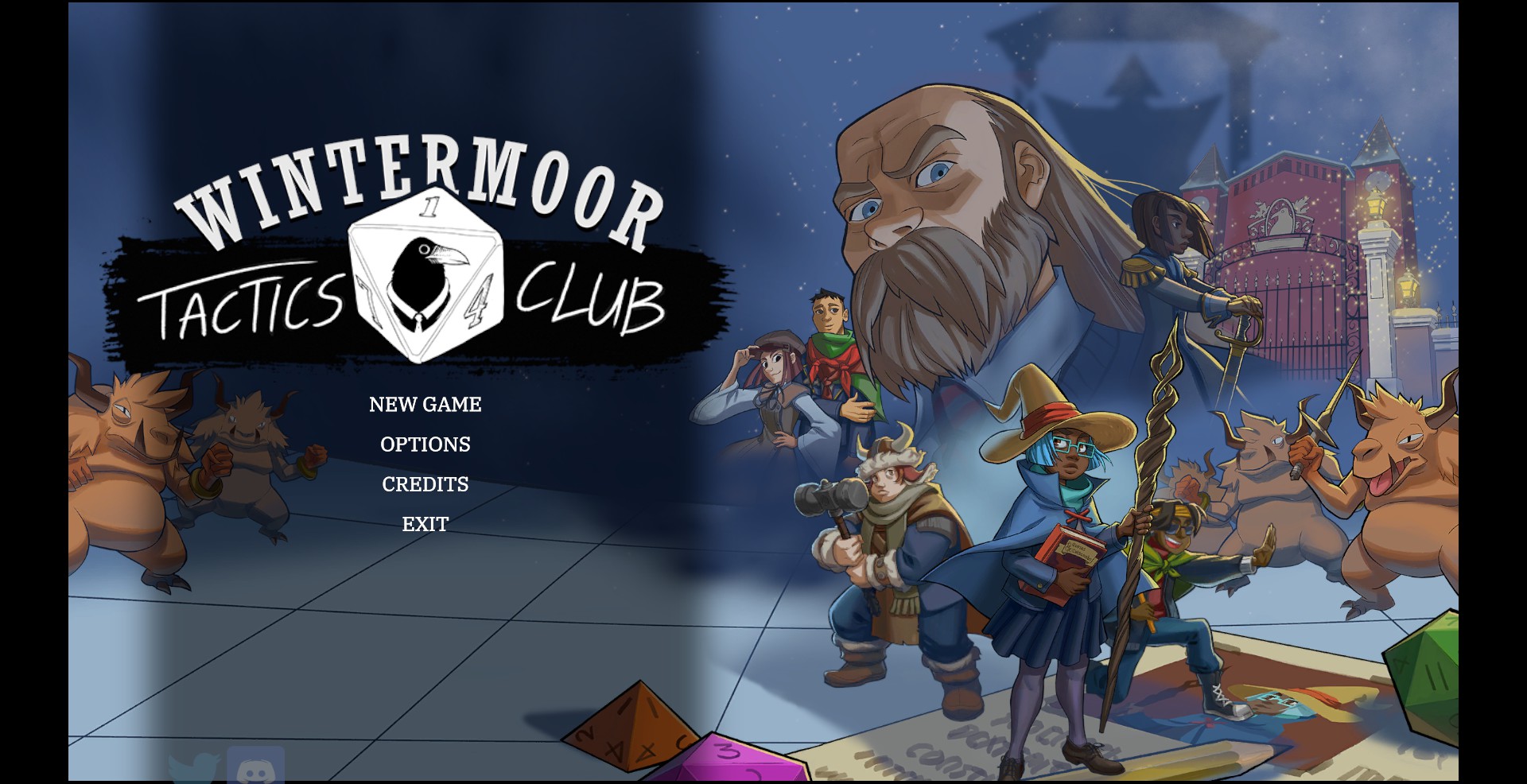
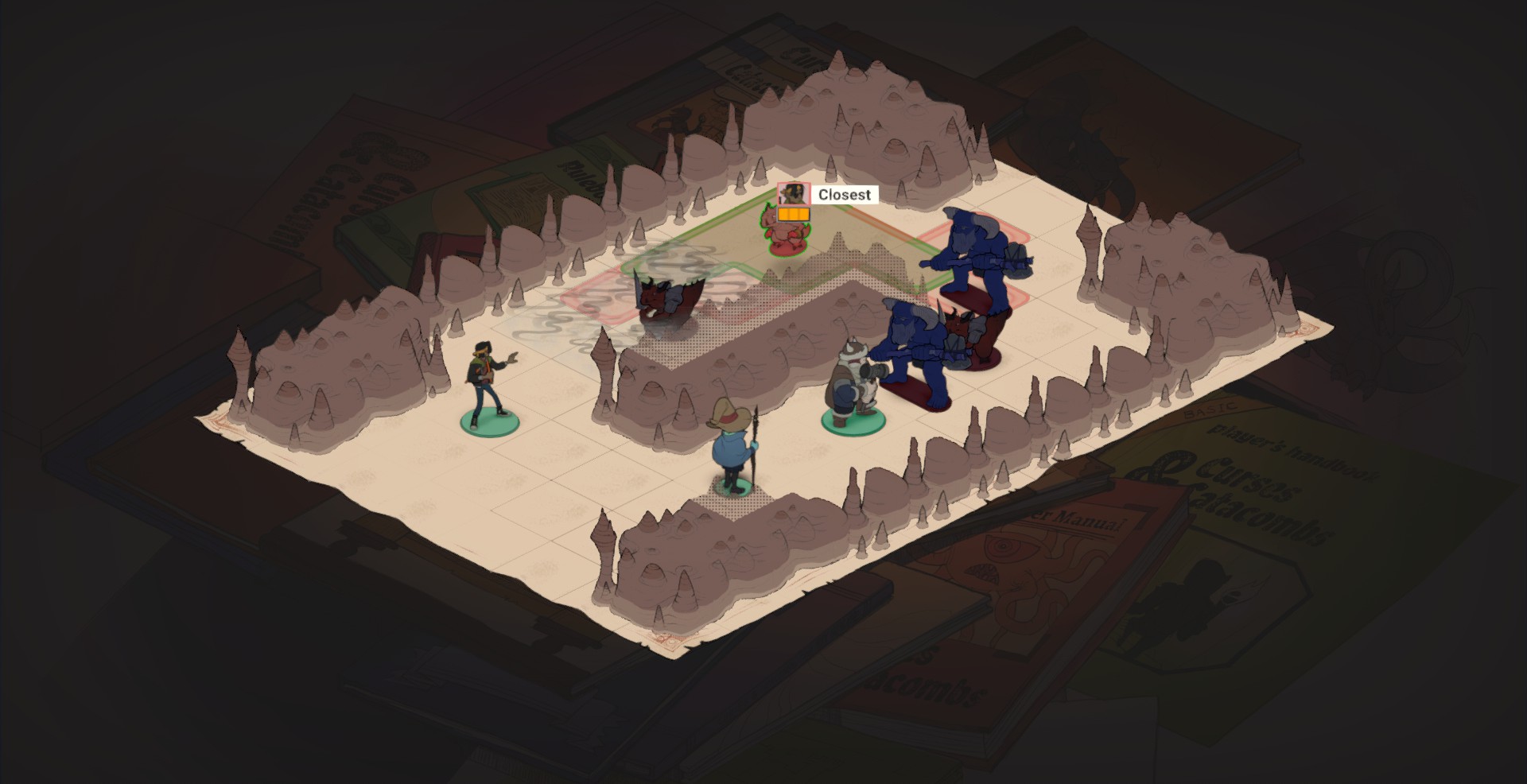
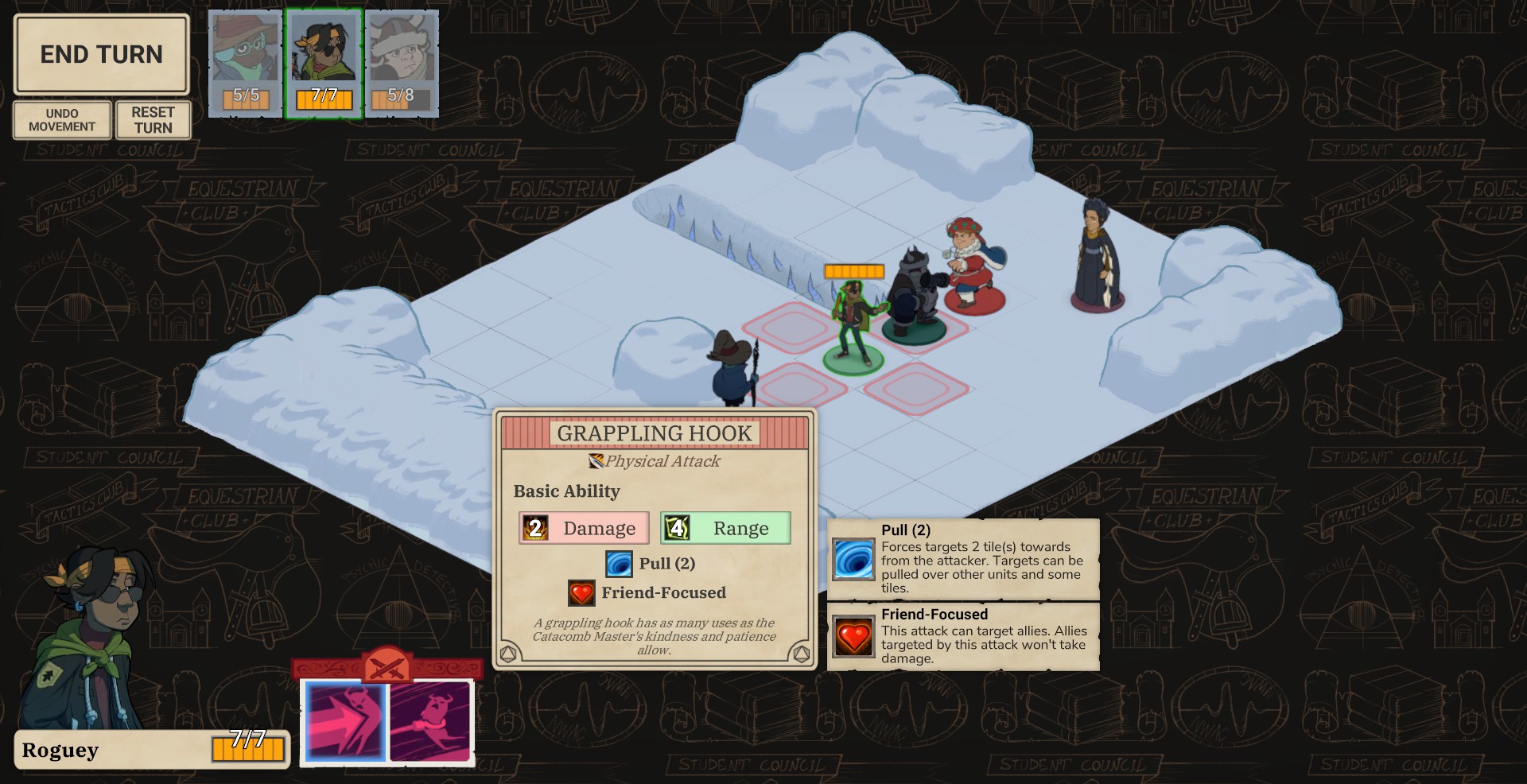
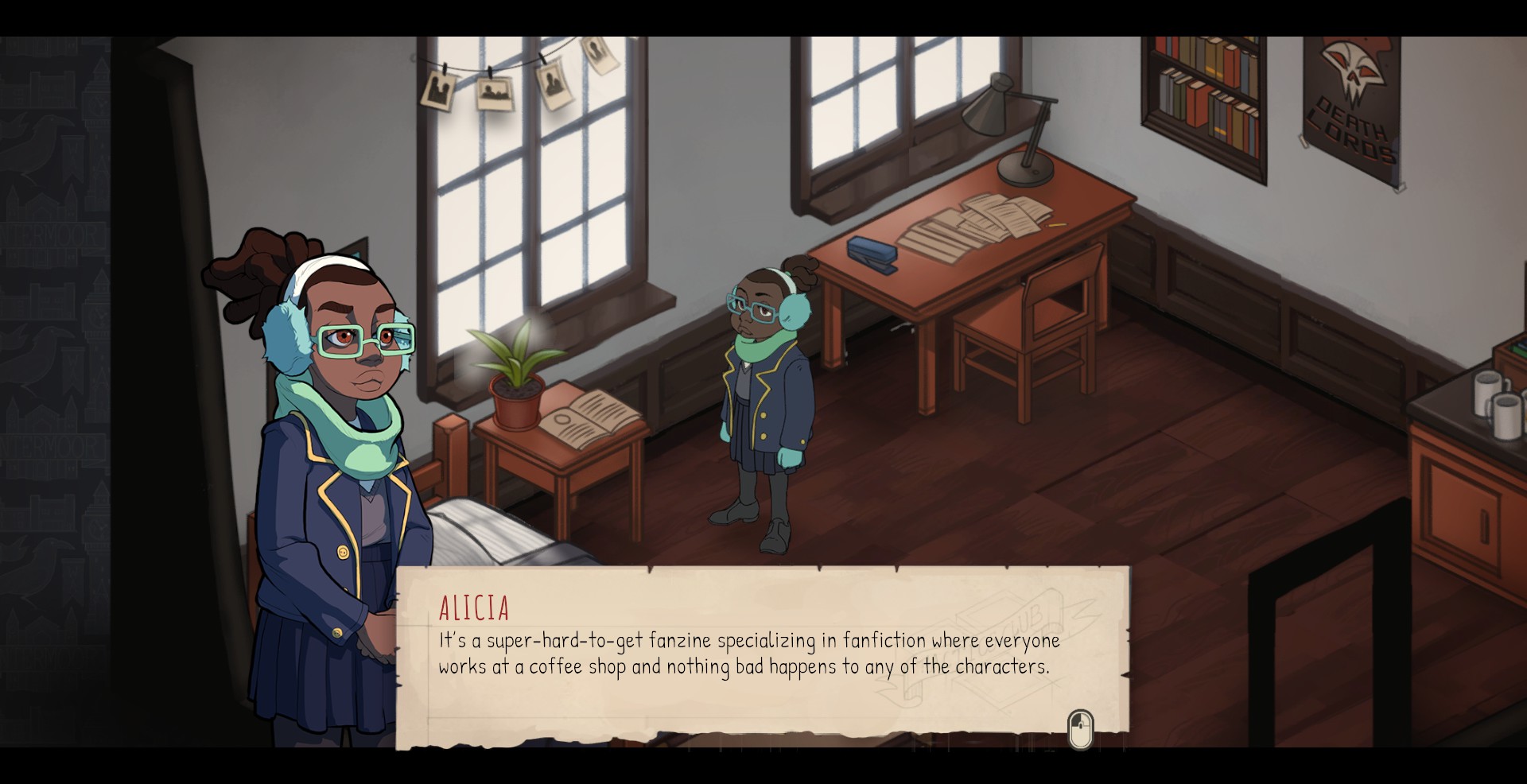
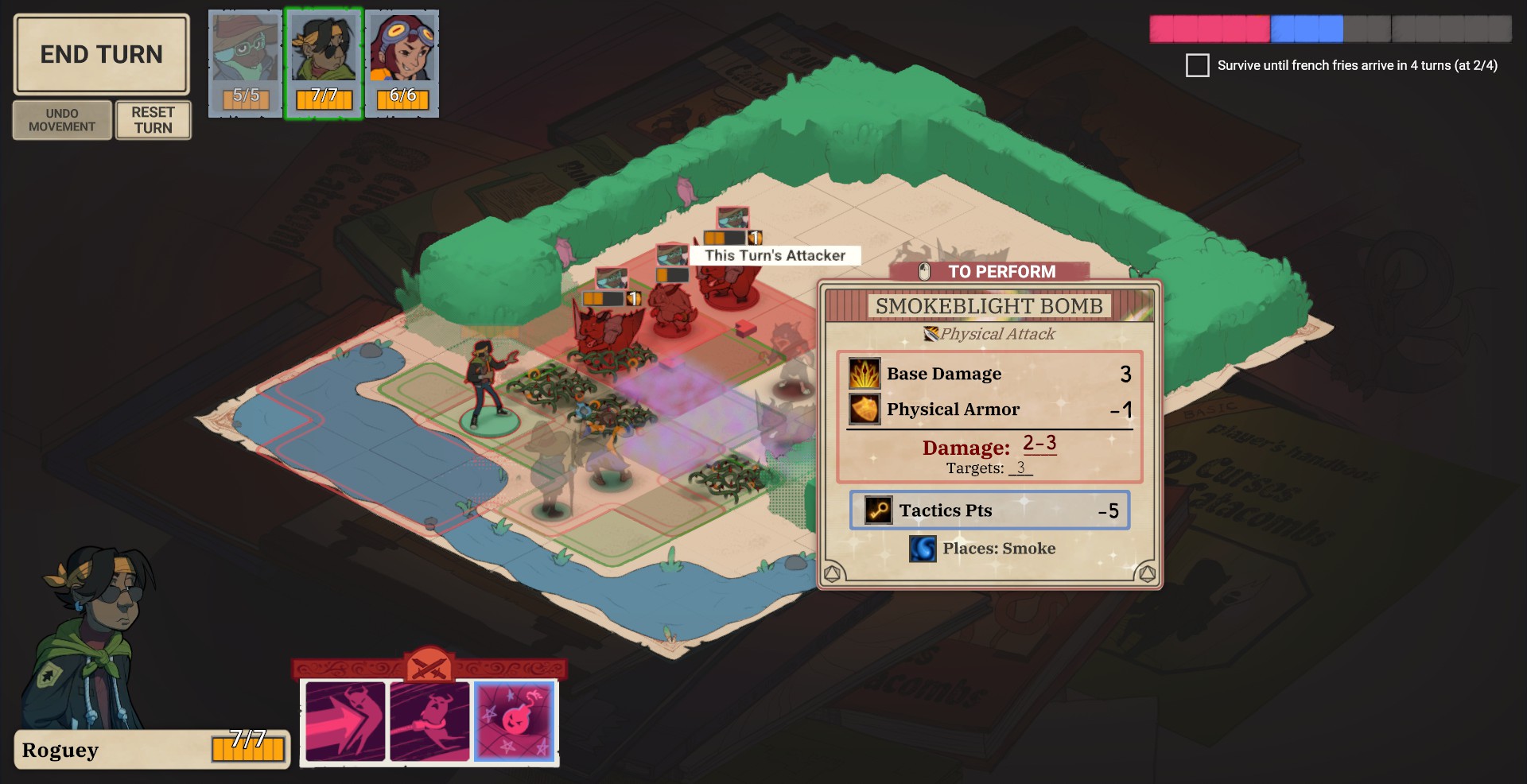
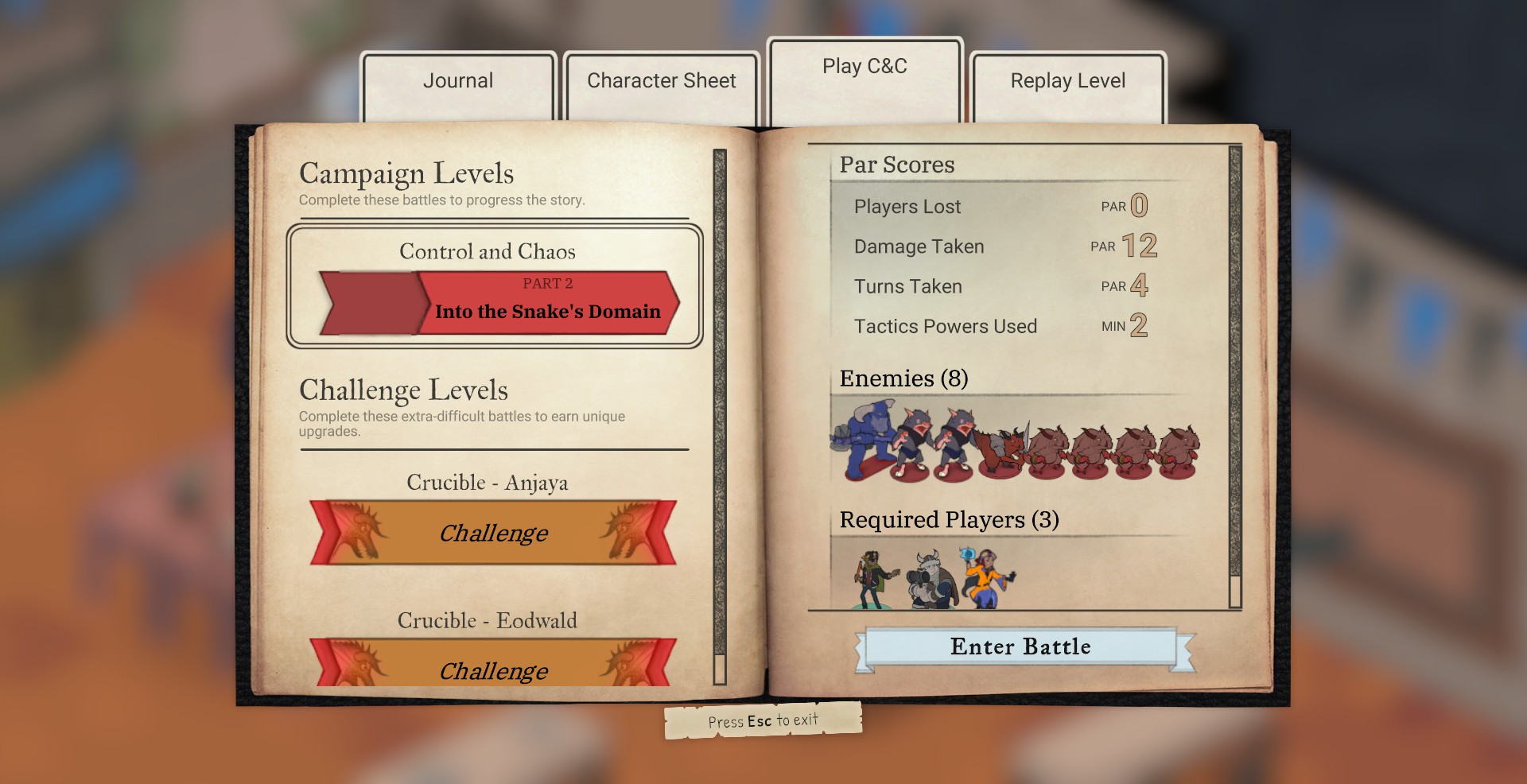
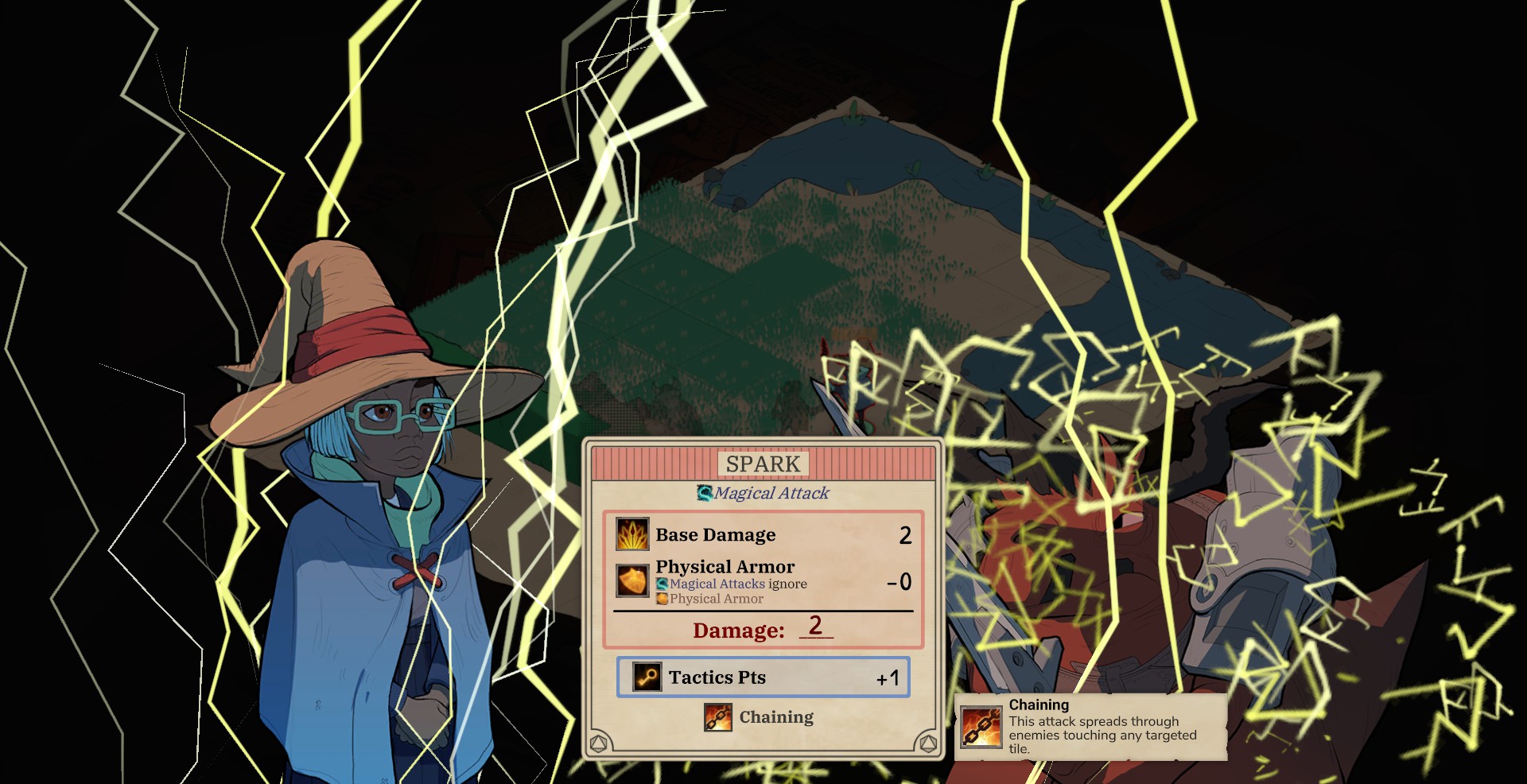





Published: May 5, 2020 02:22 am